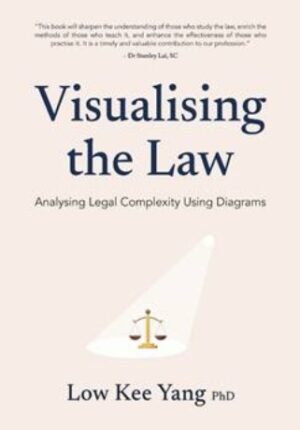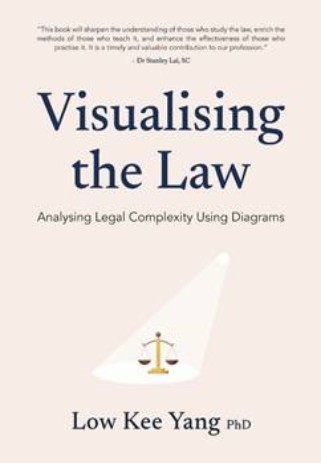About the Author:-
Low Kee Yang, PhD, is an associate professor of law at Singapore Management University (SMU) and has been in academia for about four decades. He has taught numerous undergraduate and postgraduate courses, including Contract Law, Company Law, Law of
Torts, Financial Advisers Law, Legal Environment of Business and Legal Knowledge and Strategy. His book publications include The Law of Guarantees in Singapore & Malaysia, The Executive’s Guide to Business & the Law, Read the Fine Print: Avoiding Major Legal Pitfalls and A Clear View of the Law: Making Sense of Legal Complexity. He has also written numerous articles on a wide spectrum of legal topics.
Dr Low was part of the start-up team of SMU in 1998 and headed the SMU School of Law as its Interim Dean when it began in 2007. He regularly conducts seminars for lawyers as well as non-lawyers and occasionally gives legal opinions to law firms.
Outside of law, Dr Low’s interests include nature, photography, music, badminton, reading and candid conversations.
Praise for the book:-
“Visualising the Law is a pioneering work that transforms the way we approach complex legal concepts. Professor Low Kee Yang distils decades of teaching experience into clear, powerful visuals that make the law accessible, engaging and memorable. This book is
an invaluable resource for students, educators and practitioners alike.” — Lisa Sam President, Law Society of Singapore
“Dr Low’s book is a timely and innovative contribution to legal education. Studying the Law can feel somewhat overwhelming, but the book shows that complex principles become much easier to grasp when you can see them. Through the use of thoughtful diagrams and engaging explanations, the book offers law students new ways of engaging with material that is often presented only in text-heavy form. Dr Low helps students move beyond rote memorisation to real understanding. His book will not only aid study but also foster deeper conceptual thinking by helping the student see connections across legal principles. I would have welcomed such a resource when I was a student myself.” — Pearlie Koh Associate Professor, Yong Pung How School of Law, Singapore Management University
“The practice of visualising the law is a powerful means of rendering complexity more intelligible. By employing various methods, such as diagrams, mind maps and tables, convoluted factual circumstances and legal controversies can be distilled into their essential components, allowing both immediate comprehension and subsequent review. Such visual devices not only serve as effective entry points into challenging material, but also increase the accessibility and possibility of engagement with the law, ensuring that clarity of understanding is not reserved for a select few but extended to all who seek it.” — Sharon Wong Director, Millenium LLC
“Decades of teaching have shown me that visual tools are not only useful, but often essential in the training of young legal minds. Learning the law—particularly the common law, in all its richness and complexity—can be daunting for students. While visual tools cannot replace the reading of legal texts, such tools can serve several important purposes: identifying key concepts and principles, situating them in the subject area relative to adjacent notions and rules, testing one’s understanding of a subject area, and providing an overarching structure with which to navigate a topic or theme. Professor Low’s book is therefore a significant contribution in that it takes the novel perspective of explaining the efficacy of visual tools in both the learning and teaching of law. This book provides a wealth of ideas for both law students and teachers, without trivialising the learning process. Rather, it rightly recognises the sometimes-neglected role of visual illustrations in advancing this process.” — Locknie Hsu Professor, Yong Pung How School of Law, Singapore Management University
“In his recent book Tort Law: A Critical Overview, Prof Low Kee Yang helped the reader to appreciate—sometimes through the use of tables and charts—tort law with its complexity, utility, and inconsistencies. In this new book, he goes deeper with visuals. He shares his childhood love for the visual and how he has used that, somewhat against the grain, in aiding his teaching of the law. Kee Yang first deconstructs for us a whole range of visuals we can use to aid sound thinking and analysis. He then shows how his
insistence on first constructing visuals to sharpen himself on what he is about to teach, has rubbed off onto his law students. They have in turn produced tables, charts and mind maps in seminars which reflect good understanding of the often difficult subjects,
which will illumine law students and practitioners alike. Happily, his visuals have stretched to the occasional ironic poem or jocular song which has brought both relief and merriment to the study of law for teacher and student alike. Kee Yang is probably ahead of his time in pushing for the greater use visuals in a discipline which has thus far hallowed only words. Perhaps that time has come.” — Daniel John Goodwins Law Corporation













